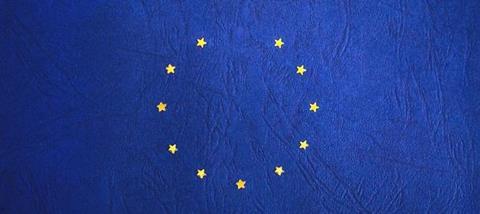
I’ve never lived in a UK that wasn’t a part of the EU. The Cold War was only something that I read about in history books. China has only ever been a superpower to me.
The Britain I knew was never one that stood alone on the world stage, it was always a part of something bigger. The first Prime Minister who I was aware of was Tony Blair, a man who oozed confidence in the UK, and governed during a period where the country never seemed to feel like it was hard done by.
Living in London meant it was cheaper and quicker to get to Paris than many parts of the UK. I was exposed to dozens of languages every day and, despite urban myths about EU regulations regarding the shape of bananas, I enjoyed a world of amazing food at my doorstep.
I write all of this to explain how the starting point for many Remainers in the run up to the referendum was: “It ain’t broke, let's not fix it”. To me, things seemed far from broke, they seemed great. So prior to the referendum, I was puzzled by many of the arguments being put forward about lack of sovereignty, immigration, or oppressive unelected EU officials. I also saw the EU as a way for us to live out Hebrews 12:14: “Make every effort to live in peace with everybody…” Europe didn’t seem to have any leanings toward division or war, and the ‘reds’ weren’t ‘under the bed’.
The only time that I saw any beginnings of division in Europe was when we saw the mass arrival of refugees to our borders. The EU was then, in my eyes, the perfect mechanism for absorbing these millions. We could spread them across multiple countries, sharing the burden, and with our collective might we could help share our two shirts with those who have none (Luke 3:11).
When David Cameron returned from the EU with a raft of changes, I welcomed them as an example of how the UK held influence in Europe. Many of the Brexiteer arguments seemed dealt with. I happily started campaigning for Remain, spending many evenings outside tube stations handing out flyers. These leaflets declared that we get access to police intelligence from across Europe, that we benefit from free trade, and that we have seen unprecedented stability across the continent.
The Brexit argument that I felt was the hardest to swallow, was that from my more vocal Christian friends. Prophecies apparently warned of the EU as Babylon. The EU President was the Anti-Christ and the EU was the ‘final world empire’. This galvanised my belief that the Brexit campaign was built on a huge misconception as to what the EU was.
Changing my mind
It wasn’t until a year after the referendum that I began the pivot towards supporting Brexit. Though not because it was the outcome I wanted. I still wish we could change the EU for the better from the inside.
As negotiations began, it became clear that the EU was perhaps a little more self-serving than I had known. Everything that Brexiteers warned about pre-referendum, seemed to now be true.
However, it wasn’t these Brexiteer arguments that led me to my current position. It was a combination of a passion for democracy and a fear for the future of Christianity.
The European Courts have issued rulings on abortion, euthanasia and same-sex marriage, which go against the beliefs of many Christians.
The democracy argument is straightforward: We still haven’t implemented the result of the first referendum. Sure, we hear stories of people telling lies during the campaign or the public not knowing what they were voting for. But as I think back to the literature I was given to hand out for the Remain campaign, I remember how both sides sold a fantasy. This is what every side does in every election. And it's why we voters must take responsibility for our own education. We can't just believe what we're told. We have to fact check and do all we can to make an informed decision.
As for the future of Christianity, putting aside any fear about the ‘Islamisation of Europe’, I do fear that Christians will lose the right to practice our beliefs freely. The European Courts have issued rulings on abortion, euthanasia and same-sex marriage, which go against the beliefs of many Christians. And their rulings can't be overruled in UK courts. There seems to be an ever growing censorship of free speech and practice of religious belief.
Everything that Brexiteers warned about pre-referendum, seemed to now be true
Guy Verhofstadt, a negotiator for the EU, recently used the Liberal Democrat’s conference to encourage empires and also state that “The world of tomorrow is a world of empires…Europeans, and you British, can only defend your way of life…in a European framework”. I don’t like the sound of that. If this is the intended direction of the EU (to become an empire) and if they are serious about ‘ever closer integration’, then we can be sure that it won’t be one which is built on Christian values.
Britain now has a chance to decide our own future. Christians in Britain now have a chance to influence that direction, in a much greater way than we could have in the EU. This is our chance to create a safe haven for Europe’s, and the world's, Christians.
If we did have to vote again, this time I’d vote Brexit.
David Taylor is a PR and Communications specialist. He is a keen political campaigner and passionate about seeing Christians engaging in the political sphere
Premier Christianity is committed to publishing a variety of opinion pieces from across the UK Church. The views expressed on our blog do not necessarily represent those of the publisher.






























